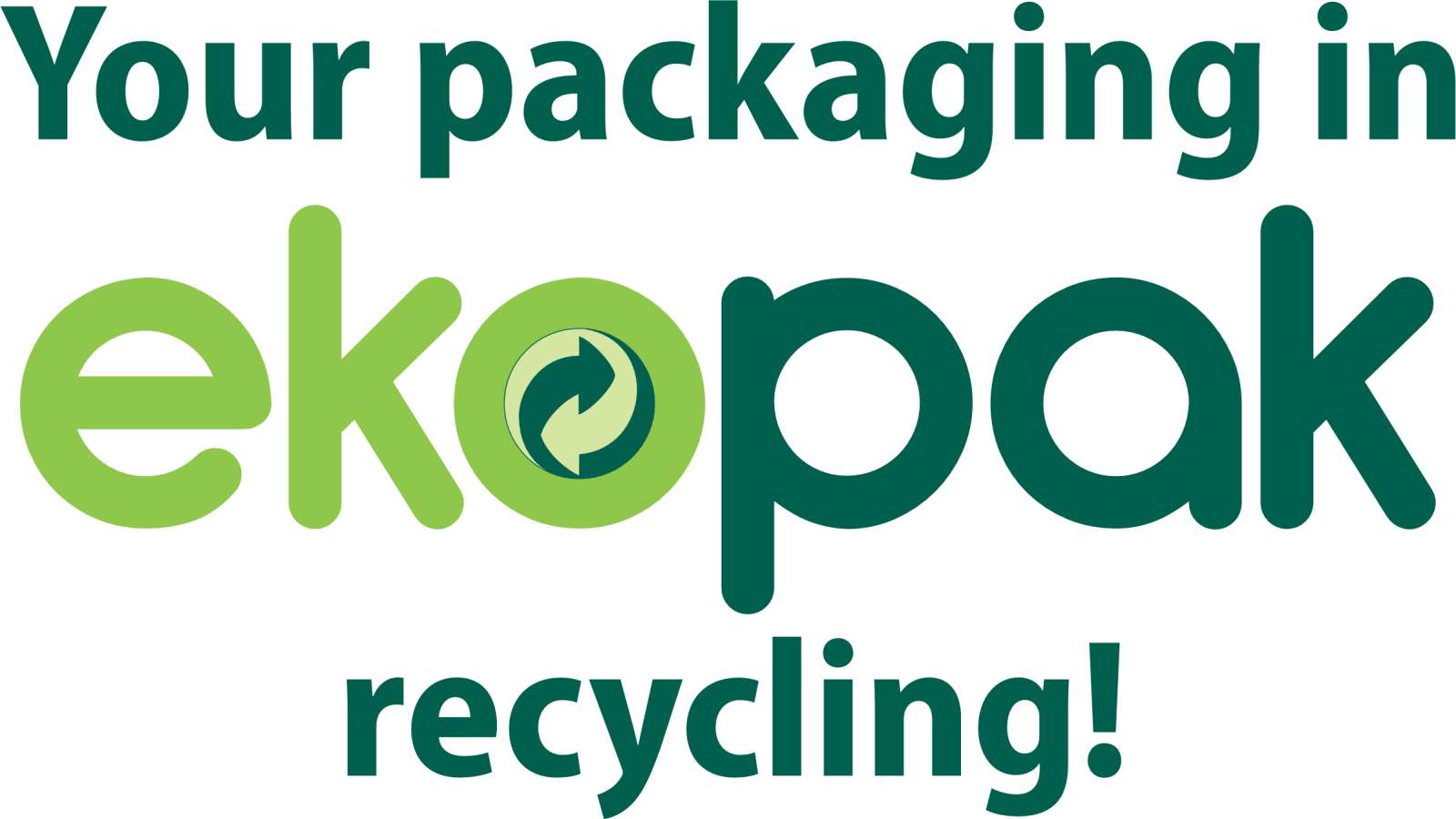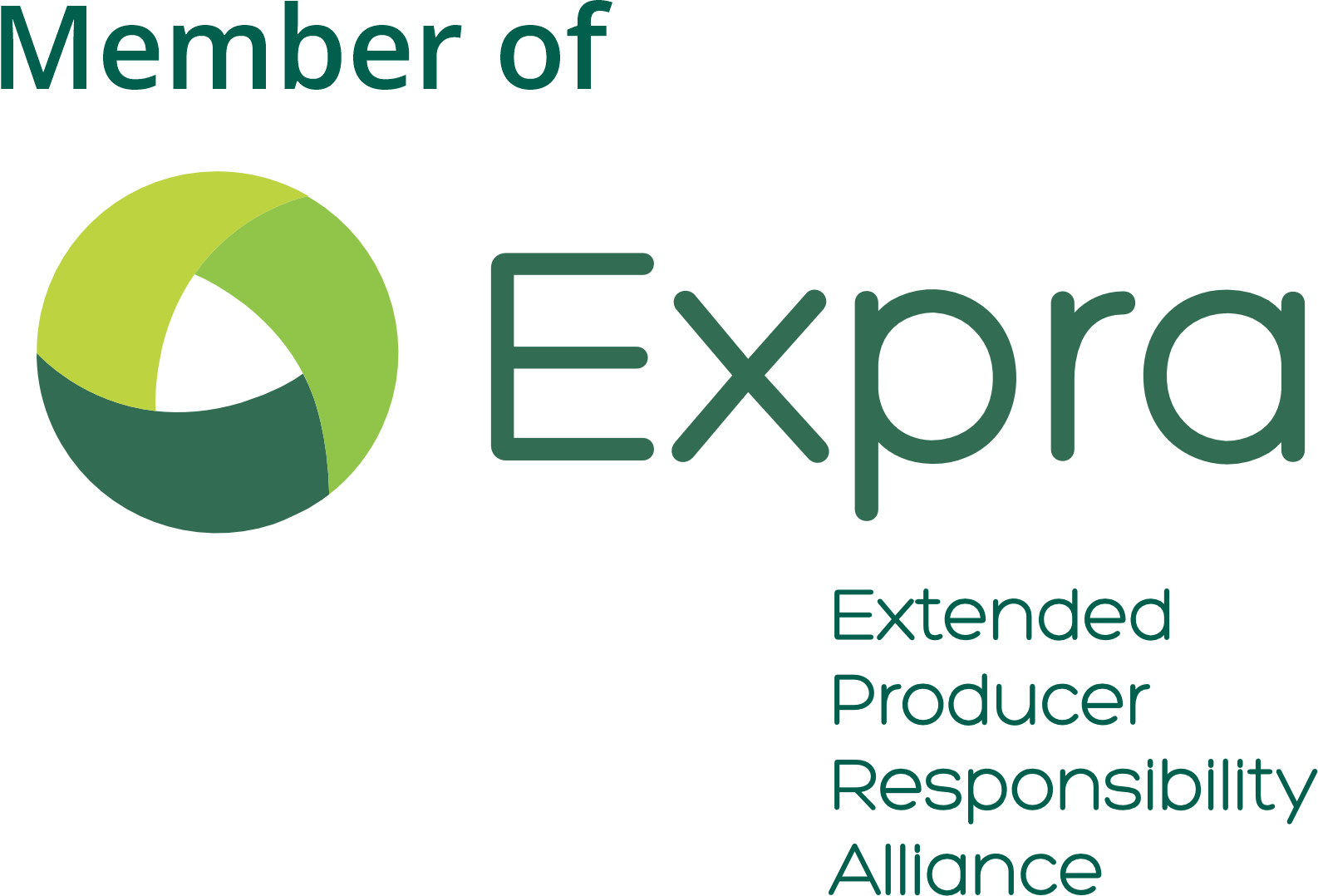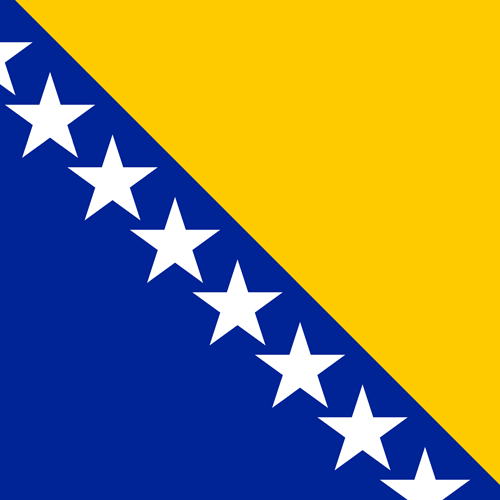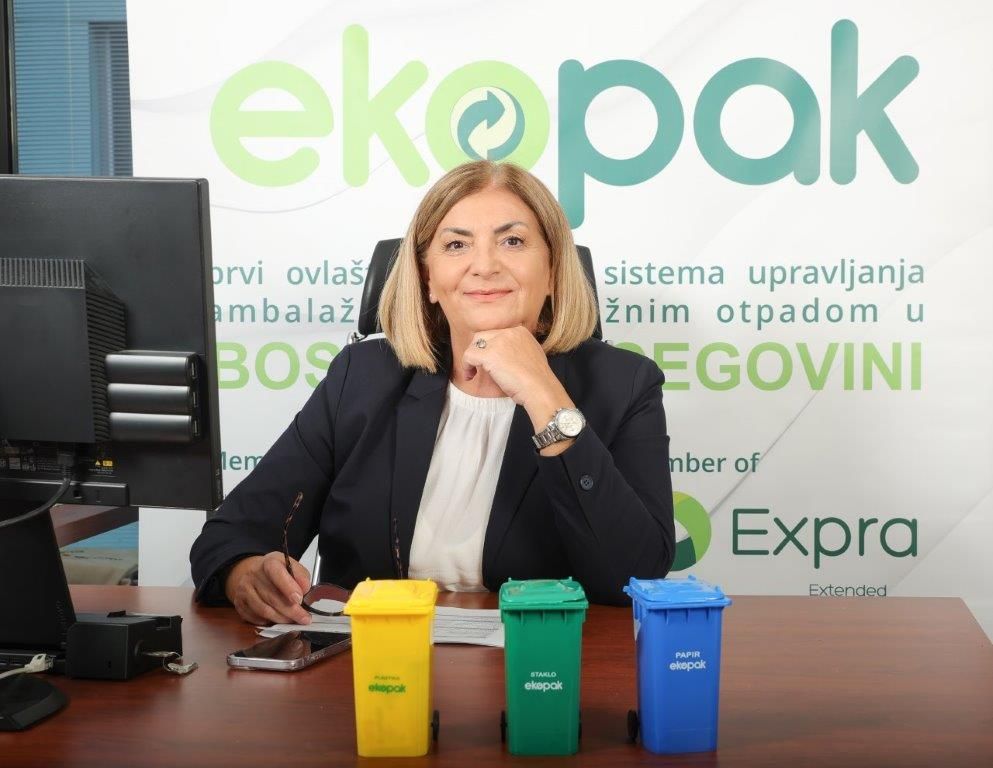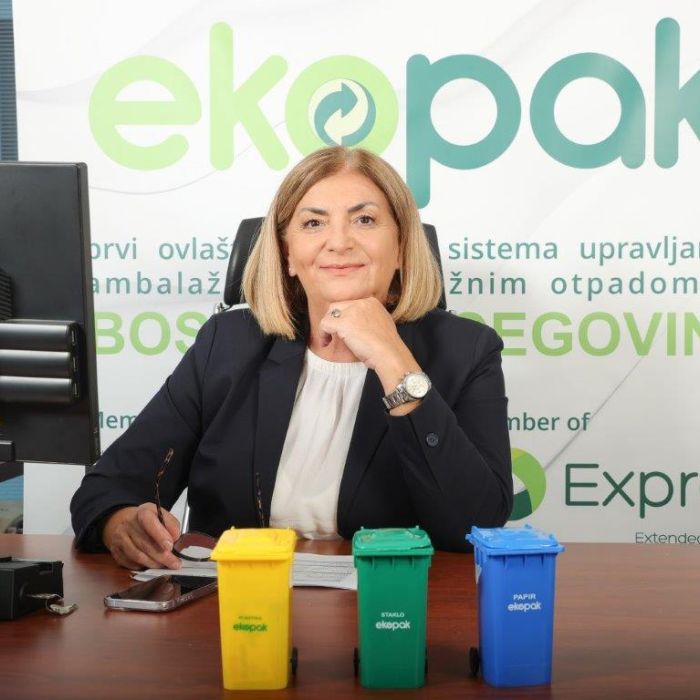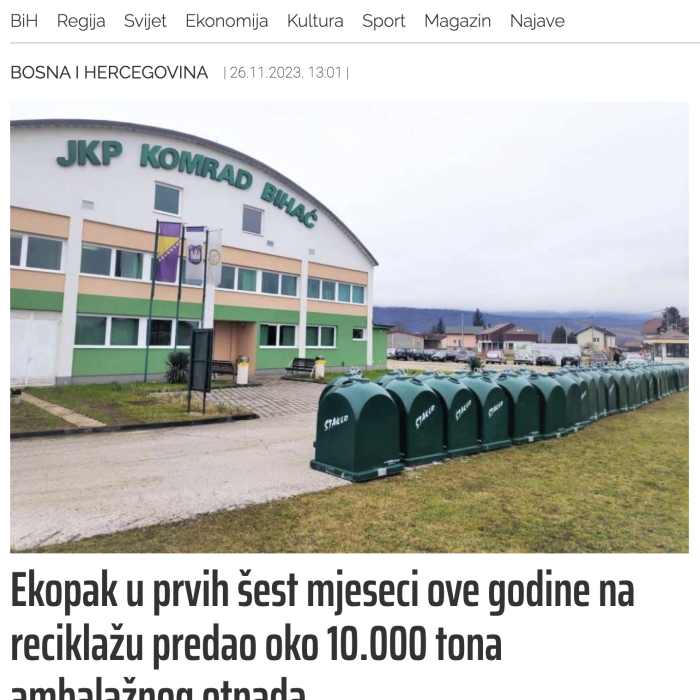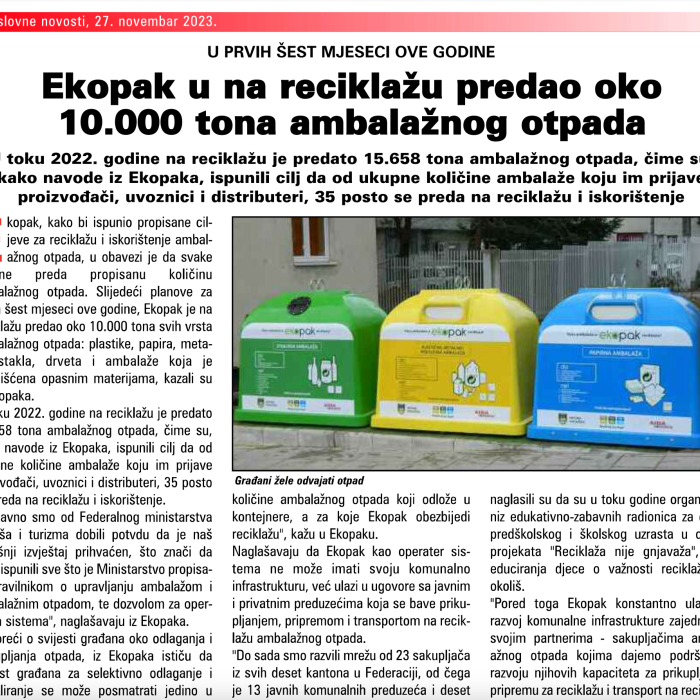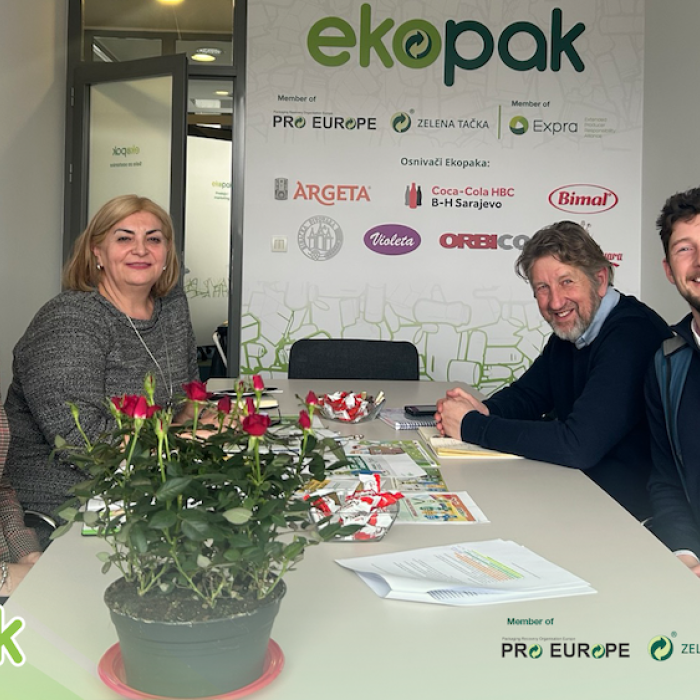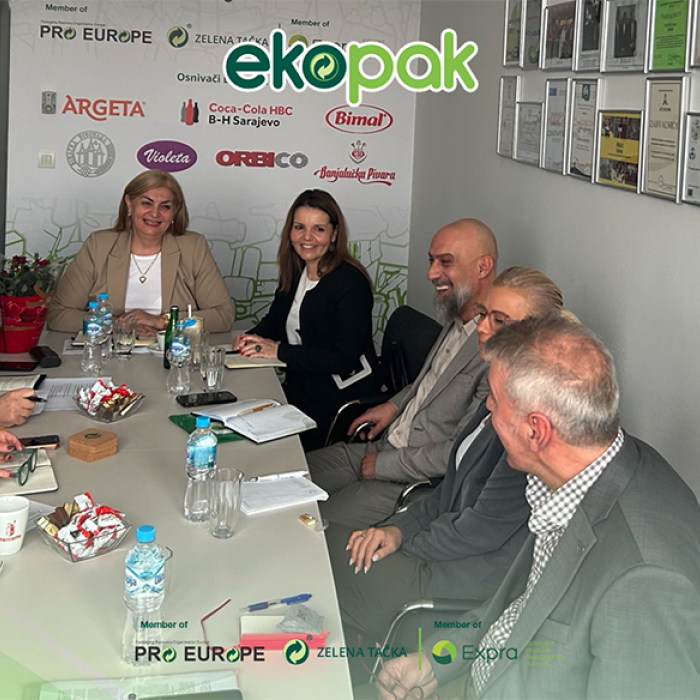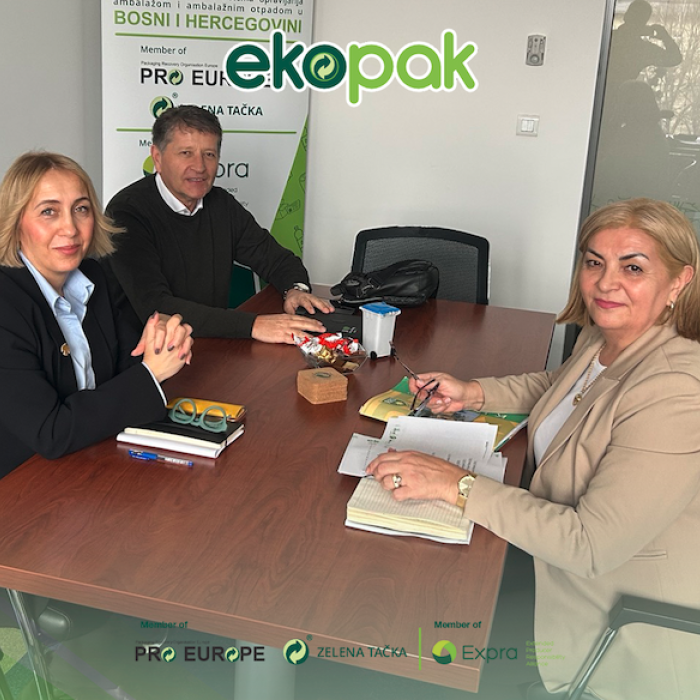Ekopak submitted approximately 10,000 tons of packaging waste for recycling in the first six months of this year
In order to meet prescribed recycling and utilization targets for packaging waste, Ekopak is obligated to submit the designated amount of packaging waste each year. Following the plans for the first six months of this year, Ekopak has submitted for recycling approximately 10,000 tons of all types of packaging waste: plastic, paper, metal, glass, wood, and packaging contaminated with hazardous materials," said Amela Hrbat in her interview with the news agency Fena.
In 2022, a total of 15,658 tons of packaging waste were submitted for recycling, fulfilling the goal specified by Ekopak, stating that 35 percent of the total reported packaging by producers, importers, and distributors must be directed towards recycling and utilization.
"We have recently received confirmation from the Federal Ministry of Environment and Tourism that our annual report has been accepted, signifying our compliance with all regulations outlined in the Packaging and Packaging Waste Management Regulations, as well as the permit as a system operator," emphasize Ekopak representatives.
Regarding public awareness about waste disposal and collection, Ekopak highlights that citizen awareness for selective waste disposal and recycling can only be assessed in the context of existing infrastructure, containers provided for citizens to separate different recyclable materials.
"Ekopak has had very positive experiences in local communities where, in collaboration with municipal companies, we have established containers, eco-islands, recycling yards, etc., such as in Bihać, Gračanica, Novi Travnik, Ključ, Tomislavgrad. Citizens show interest in separate waste disposal in their households, which we primarily observe through the amounts of packaging waste deposited in containers, for which Ekopak ensures recycling," state Ekopak representatives.
They emphasize that as a system operator, Ekopak cannot have its own municipal infrastructure but enters into contracts with public and private companies engaged in collecting, preparing, and transporting packaging waste for recycling.
"To date, we have developed a network of 23 collectors from all 10 cantons in FBiH, including 13 public municipal companies and 10 private collectors. We are particularly proud of the work of public municipal companies, which either collected very small quantities of some packaging materials before collaborating with Ekopak or did not collect them at all. Today, we monitor their progress, i.e., the increase in quantities of packaging waste from municipal waste. This further means that they are depositing less municipal waste in landfills, redirecting larger quantities through the Ekopak system for recycling," they highlight.
Regarding Ekopak's ongoing projects, they emphasized organizing a series of educational and entertaining workshops for preschool and school children as part of the 'Recycling Isn't a Hassle' projects aimed at educating children about the importance of recycling for our environment.
"In addition, Ekopak constantly invests in the development of municipal infrastructure, together with its partners—waste packaging collectors to whom we provide support in developing their capacities for collecting, preparing for recycling, and transporting packaging waste for recycling," Ekopak representatives said.
They noted that at the beginning of the year, the city of Bihać received its first underground eco-island to achieve more efficient collection of packaging waste, reducing the number of existing aboveground containers in the city center and enabling selective waste disposal in containers designated for separating paper, plastic, glass, metal packaging waste, and mixed municipal waste.
"We co-financed the purchase of vehicles for packaging waste transportation for JKP Rad Ključ, JKP Komrad Bihać. We provided waste sorting bins to schools and kindergartens in Konjic. We marked World Earth Day with the youngest citizens from the Municipality of Vitez, Semizovac, and the International School of Sarajevo. Waste sorting bins were also provided to the University Campus in Sarajevo," they emphasized.
"Ekopak will continue working on developing the packaging waste recycling system, acquiring infrastructure, and engaging in educational and promotional activities, following the best practices from European countries, drawn from our membership in two umbrella European packaging organizations—Pro Europe and Expra, headquartered in Brussels. In this way, in the segment of packaging and packaging waste management, we aim to bring our country closer to Europe," stated Fena representatives from Ekopak."
